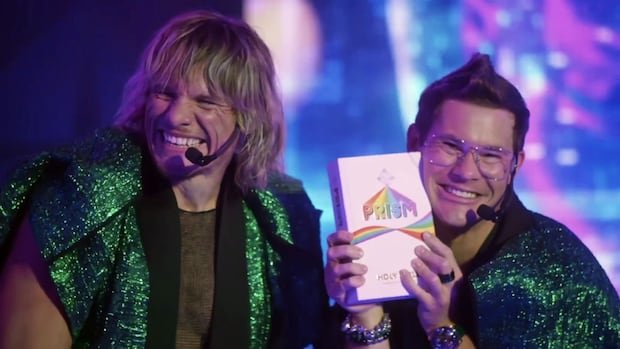The glimmer of a gold cross chain around Pastor Steven Furtick’s neck shines under the stage lights as he energetically engages with the off-camera audience. Clad in a scoop-neck heather-grey tee that accentuates his chest hair, Pastor Furtick’s presence is captivating. Watching his sermon being livestreamed on a projector screen from Elevation Church’s North Carolina headquarters, the audience is mesmerized by his passionate gestures and fervor for God.
Megachurches thrive on a steady influx of tithes, much of which goes to their leaders, creating a spectacle that their devoted followers expect. The celebrity pastors project an aura of charisma through their performances, embodying a veneer of masculinity with tanning oil, WWJD dog tags, and trendy hairstyles. Reflecting on my early church experiences, I absorbed the image of what a “good Christian man” should be, storing those ideals in my memory.
The megachurch atmosphere is a spectacle in itself, with a grand stage resembling a concert venue adorned with keyboards, strobe lights, fluorescent crosses, and karaoke lyrics displayed on large TV screens. The worship band delivers modern, rock-infused interpretations of traditional hymns, fostering community through activities like trips to amusement parks and trampoline centers.
“The Righteous Gemstones,” a recent HBO series created by Danny McBride, humorously portrays the lives of the eccentric Gemstone family, known for their lavish lifestyle and flamboyant attire. The siblings, Jesse, Judy, and Kelvin, revel in opulence, residing in elaborate mansions on the Gemstone compound and flaunting their wealth with extravagant accessories.
Kelvin, the youngest Gemstone sibling, struggles with his identity and eventually comes out as queer, challenging traditional notions of masculinity within the family and the church community. Through comedic yet thought-provoking storylines, the show delves into themes of acceptance, self-discovery, and the complexities of family dynamics.
As Kelvin navigates his journey of self-acceptance and reconciliation with his identity, the series sheds light on the inherent contradictions and challenges faced by LGBTQ individuals within religious contexts. The portrayal of Kelvin’s evolution from conforming to societal expectations to embracing his authentic self resonates with audiences grappling with similar struggles.
While exploring the comedic aspects of church culture and masculinity, “The Righteous Gemstones” also confronts deeper issues of homophobia and societal pressures. Through its satirical lens, the show prompts viewers to reflect on the complexities of identity, acceptance, and the impact of societal norms on individual expression.
In a cultural landscape where traditional values and gender norms still hold sway, the portrayal of characters like Kelvin in “The Righteous Gemstones” challenges stereotypes and offers a nuanced perspective on queerness and masculinity. The series provokes discussions on the intersection of faith, identity, and societal expectations in a humorous and engaging manner.
As viewers navigate the complexities of faith, identity, and societal norms depicted in “The Righteous Gemstones,” they are encouraged to question preconceived notions and embrace diversity in all its forms. The show’s blend of humor, insight, and social commentary offers a fresh perspective on the evolving landscape of LGBTQ representation in mainstream media.

